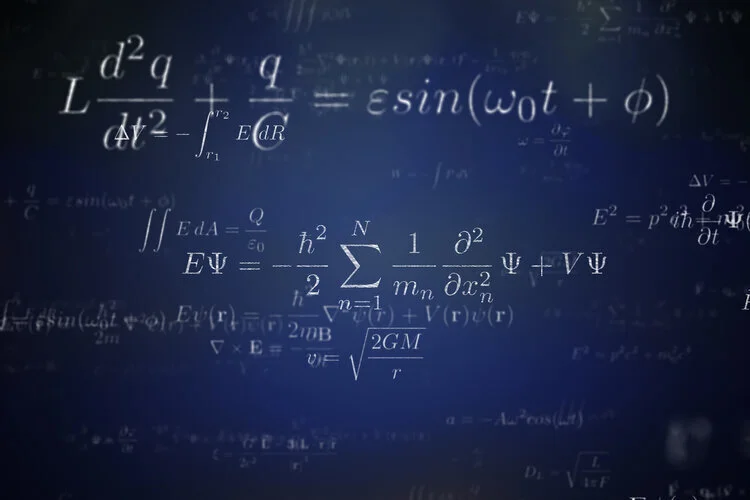New York, NY, January 21, 2025 – Stanford University scholar Mauritz Kop, a leading voice in the intricate nexus of quantum technology, AI, and law, today addressed the legal community at the Fordham Law School Library. His presentation, titled "Here Comes Quantum Computing — What the Legal Community Needs to Know," was a featured event in the Maloney Library's esteemed "Tech Lunch 'n' Learn" series, a program designed to keep legal professionals at the forefront of technological innovation.
Stanford Scholar Mauritz Kop the Quantum Future for the Legal Community at Fordham Law
Kop, the Founding Director of the Stanford Center for Responsible Quantum Technology, offered a comprehensive overview of the transformative potential and inherent risks of quantum technologies at Fordham Law. He emphasized that the leitmotif of our time is that "Quantum’s benefits outweigh its risks, if implemented responsibly".
Responsible Quantum Technology (RQT) is a framework designed to ensure that the innovation and implementation of quantum technologies align with societal demands and enhance global welfare. It provides a principled approach to guide quantum technology development.
Responsible Quantum Technology
The core components and objectives of RQT entail:
Compliance and Safety: Developers, vendors, and users of quantum systems must adhere to a range of emerging regional and global requirements. This includes technology-specific rules and industry-specific regulations in sectors like finance and healthcare, supported by standards and certifications to guarantee safe deployment.
Addressing Implications (Quantum-ELSPI): RQT involves engaging with quantum technologies in a way that is consistent with Quantum-ELSPI—the ethical, legal, socio-economic, and policy implications of the technology. This requires a tailored approach that considers the unique and counter-intuitive principles of quantum mechanics, such as superposition and entanglement.
Alignment with RRI: The RQT framework responds to the key dimensions of Responsible Research and Innovation (RRI): anticipation, reflexivity, inclusion, and responsiveness.
Ethical Foundation: RQT must align with quantum ethics, which involves identifying the dilemmas inherent in making these technologies ethical through interdisciplinary, context-specific methods.
Legal Frameworks: The framework requires adherence to legal norms like the rule of law and proportionality. It advocates for future legislation that mitigates risks and maximizes benefits, providing legal certainty to incentivize Responsible Quantum Innovation (RQI).
Socio-Economic Considerations: RQT dictates that quantum technology should prioritize society's most pressing goals, such as cybersecurity, economic stability, and managing climate change. It also mandates that the benefits and burdens of the technology should be equitably distributed.
Policy Guidance: RQT serves as a tool for policymakers, helping them learn from the governance of other disruptive technologies like AI, nuclear energy, and the internet. An important policy goal is to foster values-based quantum ecosystems globally.
Operational Principles: The RQT paradigm is put into practice through "10 Principles for Responsible Quantum Innovation". These principles are structured to safeguard, engage, and advance (SEA) quantum technologies, society, and humankind, with the ultimate goal of protecting society by responsibly advancing the technology.
Practical Tools: The framework can be used by policymakers to design regulations and can be complemented by self-regulatory tools like technology impact assessments to monitor, validate, and audit quantum applications throughout their lifecycle using appropriate RQT benchmarks and metrics.
Hardwiring Values: A core tenet of RQT is embedding shared values and standards into the design, deployment, and infrastructure of quantum systems. This includes current work on how to embed values and standards into the architecture and infrastructure of quantum AI systems, products, and services. The goal is to guide these technologies toward collective social and environmental benefit.
Quantum Computing — What the Legal Community Needs to Know
The ‘Quantum Computing — What the Legal Community Needs to Know’ lecture provided an in-depth exploration of second-generation (2G) quantum technologies, which harness the unique principles of quantum physics, such as superposition and entanglement, to solve problems beyond the grasp of classical computers. Kop highlighted recent breakthroughs, including Google's "Willow" quantum computing chip, which completed a complex calculation in under five minutes—a task that would take the fastest supercomputers an estimated 10 septillion years. This, he explained, demonstrates the potential for quantum computers to revolutionize sectors like healthcare, finance, energy, and defense.
Navigating the Ethical and Legal Maze
A significant portion of the talk was dedicated to the ethical, legal, socio-economic, and policy implications (Quantum ELSPI) of this emerging field. Kop stressed the dual-use nature of quantum technology, which, much like nuclear energy, can be applied to both civilian and military purposes. This duality necessitates a robust governance framework to prevent misuse by adversaries and to avoid a new arms race.
Kop advocated for a "Responsible Quantum Technology (RQT)" framework to ensure that innovation aligns with societal values and legal standards. This approach calls for a recalibration of legal frameworks to mitigate risks while fostering responsible innovation. He pointed to the "Collingridge dilemma," cautioning that regulating quantum too early could stifle innovation, while regulating too late could result in irreversible negative consequences.
A Call for Global Cooperation and Responsible Innovation
The lecture underscored the necessity of global cooperation in developing unified quantum interoperability standards to avoid a "quantum splinternet" fragmented along geopolitical lines. Kop argued for a research and development agenda that is "as open as possible, and as closed as necessary" to address national security concerns while fostering international partnerships.
To operationalize the RQT paradigm, Kop and his research group have proposed "10 Principles for Responsible Quantum Innovation," organized to safeguard, engage, and advance (SEA) quantum technologies for the benefit of humanity.
Fordham's Commitment to Legal Tech Education
The "Tech Lunch 'n' Learn" series at Fordham's Maloney Library provides a crucial platform for such discussions, inviting experts to shed light on the evolving landscape of law and technology. These sessions empower students and practitioners to grapple with complex subjects like AI, data privacy, and now, quantum computing.
Kop's lecture at Fordham served as a vital call to action for the legal community to proactively engage with the development of quantum technologies. As he concluded, "As society shapes technology, technology shapes society". The legal profession has a critical role to play in ensuring that the quantum era unfolds in a manner that is secure, equitable, and beneficial for all.
Meer lezen




